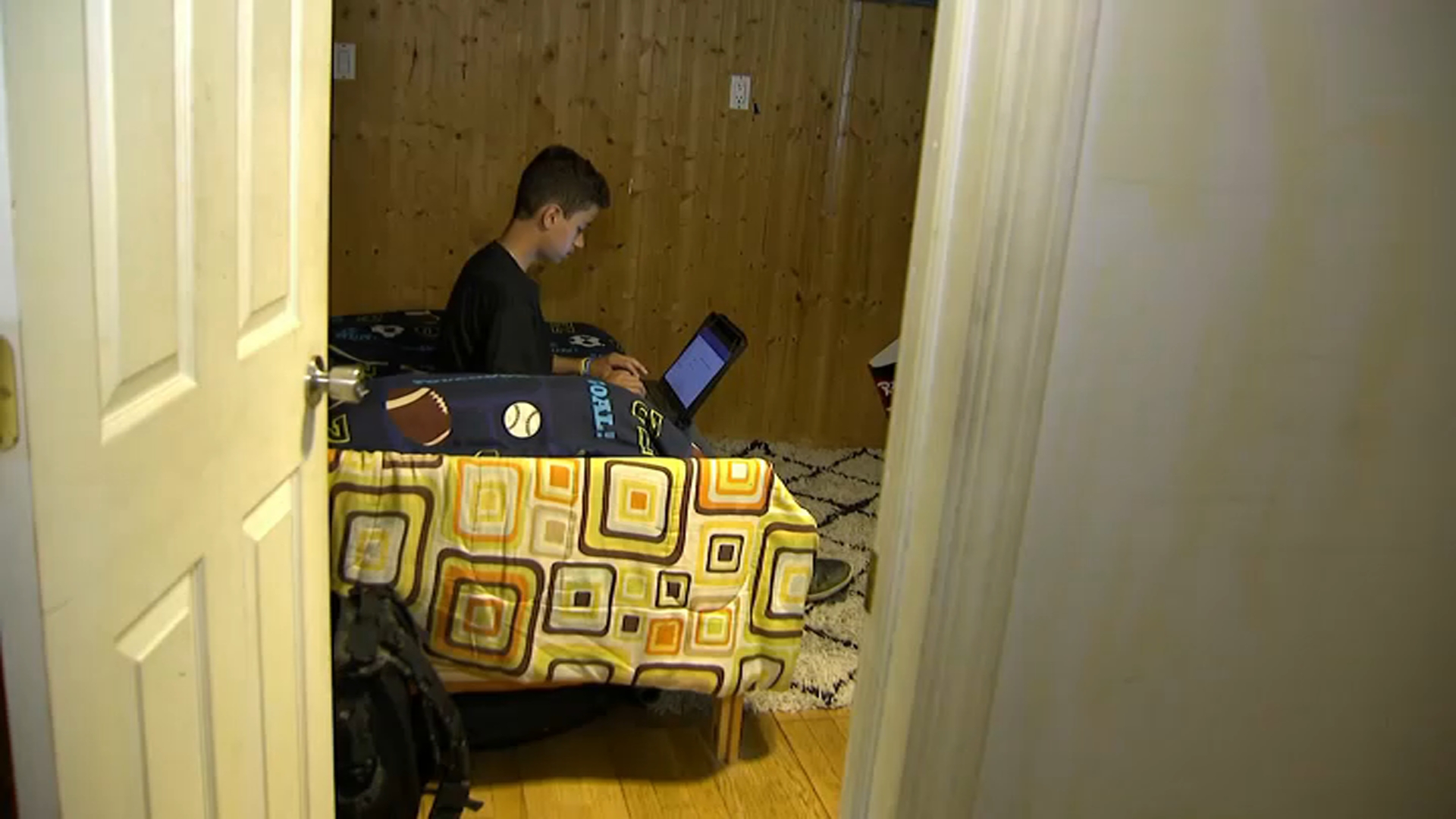NJ Sues Discord: Protecting Kids from Online Predators
NJ AG Sues Discord: Is Your Child at Risk?
Introduction: A Growing Concern for Online Child Safety
The internet, a vast and wondrous place, can also be a treacherous landscape, especially for our children. We often hear about the dangers lurking online, but sometimes, it takes concrete action like a lawsuit to really bring the issue into sharp focus. Recently, New Jersey Attorney General Matthew Platkin has taken a significant step, filing a lawsuit against Discord, the popular messaging app. But what does this mean for parents? Is Discord truly a danger to our children? Let's dive in and explore the details of this lawsuit and what it highlights about online safety.
The Core Allegation: Misleading Parents and Exposing Children
The heart of the lawsuit lies in the accusation that Discord has allegedly misled parents about the effectiveness of its safety controls. The AG claims that Discord has "obscured the risks children face" while using the application. This is a serious charge, suggesting that the app, marketed as a safe space, might be anything but.
Attorney General Platkin's Statement: A Stark Warning
In a press release, Attorney General Platkin stated that Discord is "a prime hunting ground for online predators." These are strong words, and they paint a disturbing picture. He further alleges that Discord's "misleading safety settings and lax oversight" contribute to this risk. The statement emphasizes the importance of parental awareness and the need for accountability from online platforms.
What Consumer Protection Laws Are Involved?
The lawsuit alleges that Discord has violated New Jersey's consumer protection laws. But what exactly does that mean? These laws are designed to protect consumers from deceptive or unfair business practices. In this case, the accusation is that Discord has misrepresented the safety of its platform, thus violating these laws. It's like selling a car with faulty brakes and advertising it as completely safe – a serious breach of trust.
Discord's Response: What Have They Said So Far?
As of now, Discord has not issued a formal public statement regarding this specific lawsuit. However, in the past, they have emphasized their commitment to user safety and their efforts to combat online predators. It remains to be seen how they will respond to these specific allegations in New Jersey.
Understanding Discord: What Is It and How Is It Used?
Discord is a popular messaging and voice chat application, particularly among gamers and online communities. It allows users to create servers, join communities based on shared interests, and communicate via text, voice, and video. Think of it as a digital clubhouse where people with similar interests can gather and connect.
Discord Features: Servers, Channels, and Direct Messages
Discord offers a variety of features that contribute to its popularity:
- Servers: These are essentially communities created around specific topics or interests.
- Channels: Within a server, channels allow for organized discussions around specific subtopics.
- Direct Messages: Users can also send private messages directly to each other.
The Risk Factors: What Makes Discord Vulnerable?
Several factors can contribute to the risk of online predators on platforms like Discord:
- Anonymity: Users can often create accounts with limited personal information.
- Large User Base: A large number of users increases the potential for encountering malicious actors.
- Lack of Oversight: Even with moderation efforts, it's difficult to monitor every interaction.
Parental Controls on Discord: Are They Effective?
Discord does offer parental controls, but the lawsuit questions their effectiveness. Are these controls easy to find and understand? Do they truly prevent children from accessing inappropriate content or interacting with potentially dangerous individuals? The AG's lawsuit suggests that the answer is no, or at least, not sufficiently.
What Can Parents Do? A Guide to Protecting Your Child on Discord
Regardless of the lawsuit's outcome, parents have a crucial role to play in protecting their children online. Here are some steps you can take:
- Talk to your child: Have open and honest conversations about online safety.
- Understand Discord's settings: Familiarize yourself with the platform's privacy and safety features.
- Monitor their activity: Be aware of who they're interacting with and what they're discussing.
- Set boundaries: Establish clear rules about online behavior and screen time.
- Use parental control software: Explore tools that can help monitor and restrict online activity.
Beyond Discord: A Broader Issue of Online Child Safety
This lawsuit against Discord highlights a much larger issue: the ongoing challenge of protecting children in the digital age. Social media platforms, online games, and various other apps can all pose risks. It's not just about Discord; it's about creating a safer online environment for all children.
The Legal Precedent: What Could This Lawsuit Mean for Other Platforms?
The outcome of this lawsuit could set a significant legal precedent. If New Jersey succeeds in its claims, it could encourage other states to take similar action against platforms that fail to adequately protect children. This could lead to increased regulation and stricter enforcement of online safety standards.
The Role of Regulation: Should the Government Intervene?
The debate over government regulation of online platforms is ongoing. Some argue that regulation is necessary to protect children and ensure accountability. Others believe that regulation could stifle innovation and limit free speech. Finding the right balance is a complex challenge.
The Importance of Education: Empowering Children to Protect Themselves
While parental controls and regulation are important, education is arguably the most powerful tool. By teaching children about online safety, critical thinking, and responsible online behavior, we can empower them to protect themselves from harm. This includes teaching them about the dangers of interacting with strangers online, the importance of protecting their personal information, and how to report suspicious activity.
The Future of Online Safety: A Collaborative Effort
Creating a safer online environment for children requires a collaborative effort. Platforms, parents, educators, and lawmakers must work together to develop effective solutions. This includes investing in better safety technology, providing comprehensive education, and holding platforms accountable for their actions.
Conclusion: Staying Vigilant in a Digital World
The lawsuit against Discord serves as a stark reminder of the risks that children face online. While Discord isn't inherently dangerous, it's the potential for exploitation that demands our attention. By staying informed, being proactive, and working together, we can create a safer online environment for our children. Remember, online safety is not a one-time fix; it's an ongoing process that requires constant vigilance and adaptation.
Frequently Asked Questions (FAQs)
- What is Discord, and why is it so popular with kids?
Discord is a messaging and voice chat app, popular for its communities ("servers") around games and shared interests. Kids like it because it's a place to connect with friends and like-minded individuals. - What are the biggest risks for kids on Discord?
The risks include exposure to inappropriate content, interaction with strangers who may be predators, cyberbullying, and the potential for sharing personal information without understanding the consequences. - What can parents do to make Discord safer for their children?
Parents should talk to their kids about online safety, familiarize themselves with Discord's safety settings, monitor their child's activity, set boundaries, and consider using parental control software. - Does Discord have parental control features?
Yes, Discord offers parental control features, but their effectiveness is a subject of debate. It's crucial for parents to actively manage these settings and have open conversations with their children about online safety. - Will this lawsuit change how Discord operates?
It's possible. If New Jersey wins the lawsuit, it could set a precedent for stricter regulations and increased accountability for Discord and other similar platforms regarding child safety.




